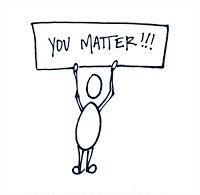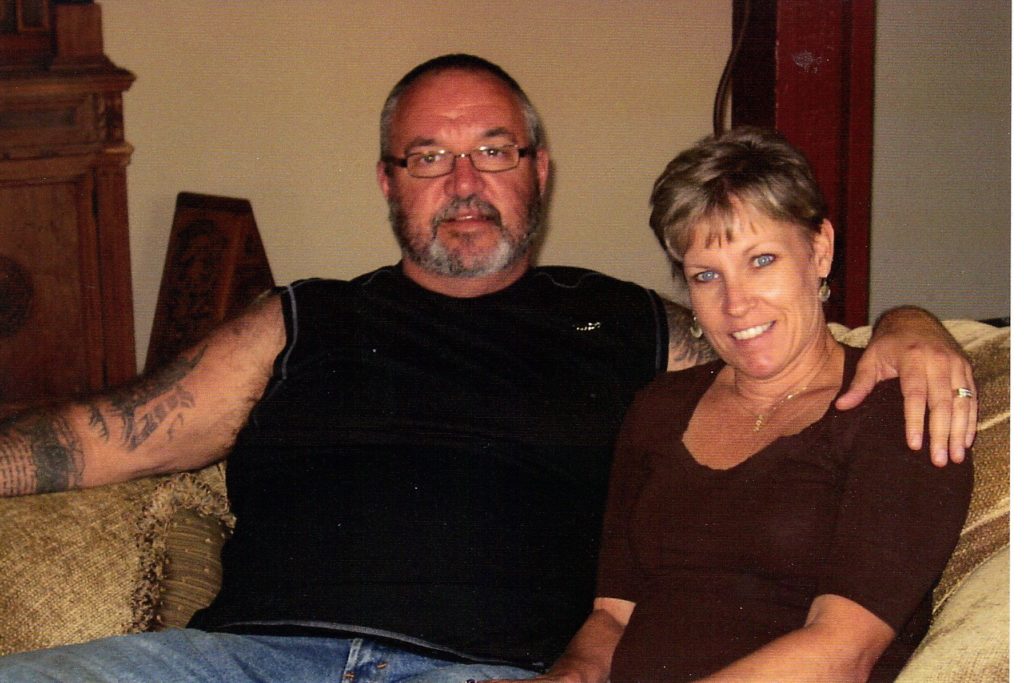“There are wounds that never show on the body that are deeper and more hurtful than anything that bleeds.” – Laurell K. Hamilton
One afternoon many years ago, before I had children, I was gardening in the front yard of our little house when I saw a woman emerge from her home a few doors down. Clearly in a rage, she walked briskly to the street where her car was parked as a boy of about 8 years old ran close behind. The boy was clearly crying and called out to her as she got into her car and slammed the car door.
“Where are you going, Mom?” he said, clearly distraught.
She didn’t respond or even turn to acknowledge him but put the key into the ignition and turned it.
“Where are you going? Please don’t go!” he fairly yelled, even as he called out to her. “Where are you going, Mom? When are you coming back?”
She ignored him and drove away, her young son standing barefoot alone in the street weeping as the car pulled away. He then ran into the house, crushed by his mother’s response to him. It was a heart-wrenching incident to witness.
Whatever happened after that, I’m not sure that anything or anyone could ever completely erase that child’s terrible memory of his mother’s decision to drive away without any acknowledgement of his terror. That morning, she sent him a message that had the potential to color that child’s life. In that singular moment, without using any words, the woman told her son that he didn’t matter.
The truth is that every day, through our words and actions, we send messages to those around us. And if I may be so bold, I think that the messages we send to those with whom we come into contact may be narrowed down to two. Either “You matter” or “You don’t matter.”
Of course we may have contact with many people during a given day, and some interactions are simply in passing or of a benign nature – neither overtly favorable nor unfavorable, yet even in casual interactions, our words and body language hold the power to convey what we all need to know – we matter. But even in the presence of our local bank teller, the server at our favorite restaurant or the cashier at the grocery store, just acknowledging those around us, looking them in the eye, and offering them a smile and a ‘thank you’ tells real people with real lives and real wounds and needs that they matter. I don’t know of a greater gift we can give to people that literally costs us nothing.
Even more so, within our intimate circle of friends, co-workers and particularly our family members, the messages we send and receive can have a powerful impact. Having recovered (mostly) from my 20 years of living with an abuser, I realize now that my former husband’s almost exclusive message to me was: “You don’t matter” or perhaps even more hurtful: “I matter, and you don’t.”
The only thing that really mattered was him – what he wanted, when and how he wanted it. Anything else was an issue, a problem, an inconvenience. Anything less than perfection (from me) was cause for criticism, condemnation and/or correction. Even when everything seemed outwardly acceptable, he could find an excuse to be discontent. He made sure I knew that, at the end of the day, I really didn’t matter, for nothing I did or said would ever be sufficient. The smallest measure of love and acceptance I sought was consciously – and cruelly – withheld. There were times when he was happy – when he got whatever it was he wanted, but even in those brief moments of peace, I know now it didn’t matter to him one way or another whether I was happy or not.
“You don’t matter.”
All abuse victims know the feeling. Yet in the midst of our unhealthy relationships, we believe we can convince our abuser that we matter. It is what we live for. We become almost exclusively preoccupied with finding a way to prove ourselves, to earn value and acceptance in his* eyes. Most of what we do is heavy-laden with the hope that perhaps tomorrow, through his words and his actions, the doubt will be erased. He will finally convey once and for all time the message we desperately long to receive from him: “You matter. You are special. You are wonderful. You are worthy of the deepest love and respect and care.”
But in my case, as in the case of so many others, tomorrow didn’t come.
So the question is, “What are the messages he is sending you?”
When he is unpredictable, manipulative, sarcastic, hostile, angry, selfish and cruel, then he is sending you a message. “I am dissatisfied with you. You are failing to make me happy, so you are not allowed to be happy.”
When he controls the finances and decides that he needs a new truck when you and your children are in dire need of basic necessities, he is saying, “What I want is more important than what you need.”
When he refuses to lift a finger to help with any of the household responsibilities or complains when things aren’t done to his standard, he is saying, “You need to do more, while I am free to do whatever I want – or nothing at all.”
When he trumps the plans you have made to suit his own, or he simply doesn’t want you to have time to yourself, he is telling you he alone decides whether or when you may go anywhere or do anything. Your plans and needs for relationship and social interaction mean nothing, while his plans are not even subject to debate.
When he decides to move your family away from your friends and other sources of emotional support, and he doesn’t even invite your perspective before making the decision, he is telling you that he doesn’t care how you (or your kids) are affected by his decisions.
When, even knowing how physically exhausted you are, he wakens you in the middle of the night or early in the morning and insists that you be sexually responsive to him, he is reminding you that his sexual needs matter more than your need for rest.
When he criticizes you, curses at you, calls you names, yells at you for the slightest thing or tells you that you are lucky he puts up with you, his design is to convince you that you are inadequate, that there is something wrong with you, that you don’t matter.
But you do matter, although your abuser wants to make sure you don’t figure that out. If he is conveying these messages to you, then know he is deliberately trying to keep you down, convince you that you are unworthy of love, and make you feel obligated to try ever harder. Know that he is neither innocent nor ignorant, but rather he knows exactly what he is doing. He is simply a liar, a tyrant, a control freak, a manipulator and a bully.
He is an abuser.
And if your abuser is anything like mine, he will occasionally toss out, “You know that I love you…” Those few words are specifically designed to disarm you, to dare you to believe the words rather than the overwhelming measure of evidence to the contrary.
If the messages he is sending you fail to convey not only that you matter but how much you matter in real and practical terms, then you must claim that truth for yourself.
Looking back on my own history, I can see the emotional trauma my former husband inflicted on my heart through his words, attitudes, behaviors and even simple body language – a glare, a shake of the head, a slamming of the door. For so many years, I felt much like that barefoot little boy standing in the street, wondering if the person who mattered most in my life would one day assure me of my love-worthiness, show me that I mattered.
So do yourself a favor and take a step back. Watch and listen and analyze what his words and actions are saying.
- Is his love conditional and always subject to doubt?
- Does he try to make you feel inadequate?
- Does he imply that you are a burden?
- Does he infer that he is merely tolerating you?
- Do his wants and needs matters above all?
If his messages to you are that you don’t matter, then (in my humble opinion) you may presume that you are living with an abuser.
Someone who loves you will make you a priority, invest in your life, ask for your perspective, do whatever he can to ensure that your needs and desires are met, accept you as you are, and prize you and make you feel special. Someone who loves you will demonstrate in a thousand different ways you are absolutely worthy of love – that you matter.
Because you do.  ###
###
*Although abusers may be of either gender, abusers are predominantly male; therefore the abuser is referenced here in the masculine. The reader’s understanding is appreciated.
Coyright 2018, All Rights Reserved
Like this:
Like Loading...




 Jesus said, “You have heard that the ancients were told, ‘You shall not commit murder’ and ‘Whoever commits murder shall be liable to the court.’ I say to you that everyone who is angry with his brother shall be guilty before the court; and whoever says to his brother, “Raca” shall be guilty before the supreme court; and whoever says, ‘You fool,’ shall be guilty enough to go into the fiery hell…” Matthew 5:21-22
Jesus said, “You have heard that the ancients were told, ‘You shall not commit murder’ and ‘Whoever commits murder shall be liable to the court.’ I say to you that everyone who is angry with his brother shall be guilty before the court; and whoever says to his brother, “Raca” shall be guilty before the supreme court; and whoever says, ‘You fool,’ shall be guilty enough to go into the fiery hell…” Matthew 5:21-22 Many of us have been taught that, as believers, we are not to judge lest we be judged. The inference is that judging others is always wrong. If we don’t want to find ourselves judged, we should not judge anyone else. Ever.
Many of us have been taught that, as believers, we are not to judge lest we be judged. The inference is that judging others is always wrong. If we don’t want to find ourselves judged, we should not judge anyone else. Ever. ###
###